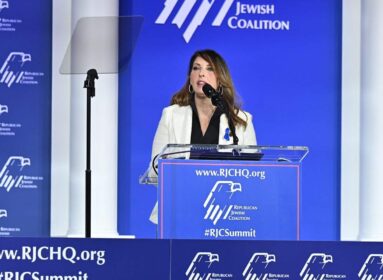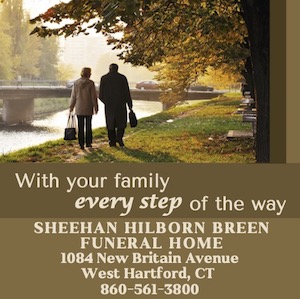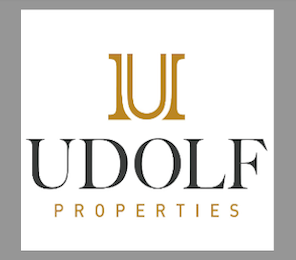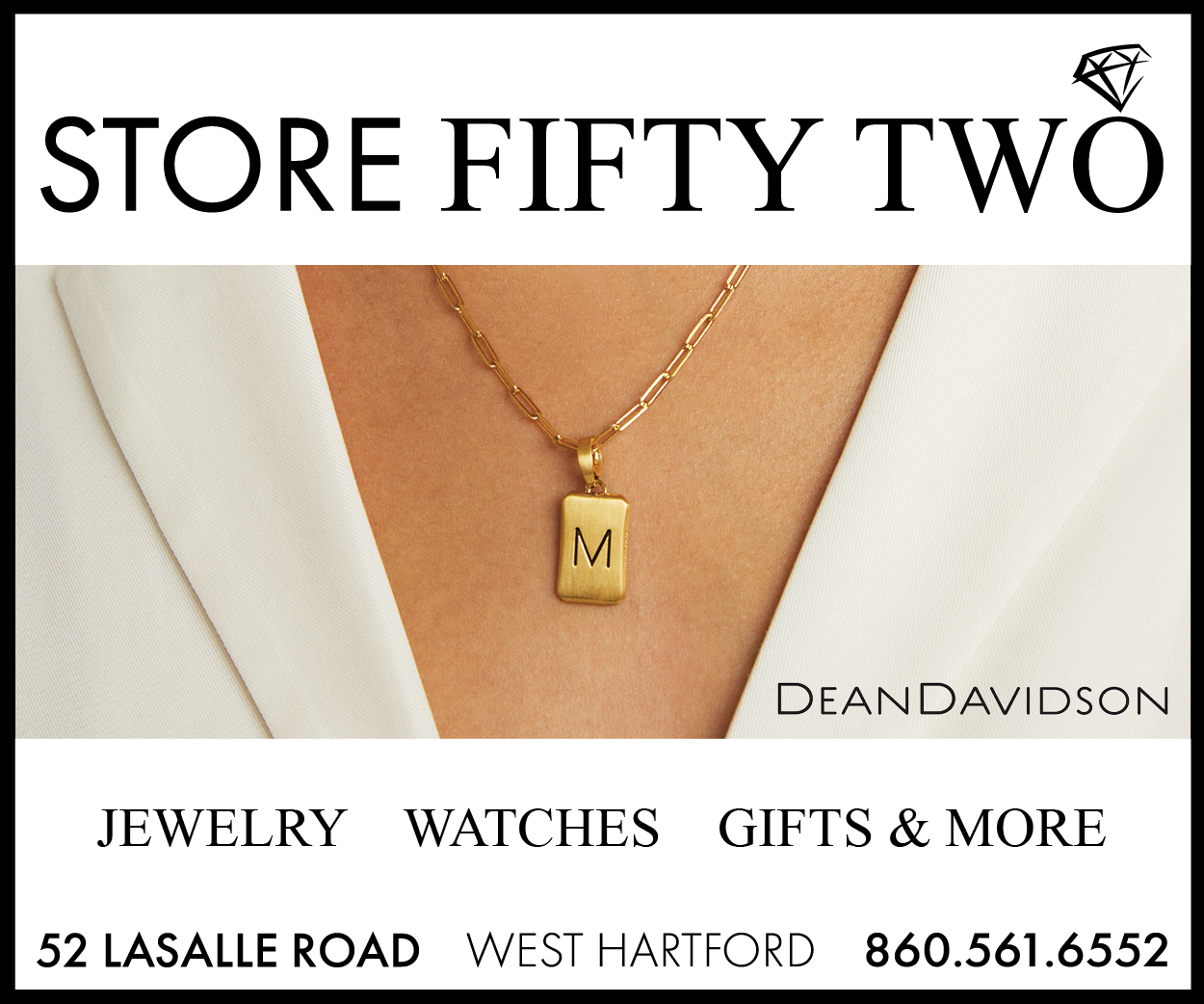
"Leap of Faith" will screen at the Mandell JCC Hartford Jewish Film Festival on Sunday, April 3 at 12:30 p.m. at the K&G Theaters in Bloomfield.
“Leap of Faith,” the first feature length documentary film to explore the phenomenon of religious conversion, follows the lives of six individuals of different backgrounds who have embarked on the journey of conversion from gentile to Orthodox Jew. The individuals – who include a 25-year-old black woman from Trinidad, a once devout Christian family from Colorado, a fashion photographer from New York, and a single mother who is an officer in the U.S. Army Reserve and her son – forsake the religion of their parents, abandon childhood traditions and enter into a wholly new and radically different system of belief and practice of worship. The resulting religious conversions create a host of crises, triumphs and surprising consequences. The story seen from one perspective is a story of ultimate devotion and from another perspective ultimate betrayal.
The film, which has screened at book festivals throughout the United States, as well as Germany and Israel, is written, directed and produced by filmmakers Stephen Friedman and Tony Benjamin, a creative team from New York with over 25 years experience writing, producing and directing television commercials and films. The two are Orthodox Jews who are both married to women whose conversion to Judaism was rooted in their own spiritual journeys.
Recently, “Leap of Faith” was embroiled in controversy when it was pulled from the Denver Jewish Film Festival after alleged pressure from members of the city’s Orthodox Jewish community.
Steve Friedman spoke with the Ledger from his home in New York about the film and the Denver controversy.
Why did you choose to do a film about conversion?
A: We’ve been in the film business for most of our careers. We were doing television commercials and other forms of industrial film and we just wanted to break out of that and do something different. The genre of documentary filmmaking was always interesting to us and looking around for a good subject the best place for any documentary filmmaker to look is always in his or her own back yard. The areas that we had most familiarity with and access to – and access is critical when you’re making documentary films – were the Orthodox Jewish community and converts, given that both my partner and I are married to women who converted to Judaism. We also looked for a dramatic and interesting subject and we thought that people converting to a new religion provided that.
You said access is important. How hard was it find people in the process of conversion?
A: It was difficult. We did quite a bit of research. We contacted a lot of rabbis and people who were doing classes in conversion; we went to synagogues and schools and slowly but surely we began developing a large group of people who were potential candidates for the film. In fact, out of the many people we met, we shot about 10 people and ultimately used four in the film itself.
Did you find any similarities among these individuals that might account for why they converted? Was there some common thread that ran through their lives?
A: Well, one of the experts in the film – one of the teachers – talks about the reasons people convert and when you hear it you can draw your own conclusions. Basically, there are about four or five different reasons that people are drawn to conversion. For example, there are those people who are seeking their own personal truth in life; there are those who are seeking a connection to a community and to others. There are different motivations and we invite the audience to draw their own conclusions as to what the motivations of the people in our film were. We often get very interesting and different opinions among those who see the film as to what lies behind each conversion. But we don’t draw conclusions in the film. We’re interested in presenting the truth of their stories. As to the interpretation, we leave that to the audience.
Tell us about the controversy in Denver regarding the film.
A: There was controversy…but we don’t know exactly what the controversy was. The film was initially accepted into the Denver Jewish Film Festival… then, we got a call saying that the film had been pulled. In fact, it was the only film pulled from the festival. They gave us a number of reasons and among them was what they considered to be concern about sensitivity in the Orthodox Jewish community in Denver. A large part of the film does take place in Denver – three of the families were from the Denver area and they all wound up moving to Denver during the conversion process in order to be a part of Denver’s Orthodox community. We were very concerned that there was pressure behind the scenes from members of the Orthodox community not to show the film. We don’t really understand why but we’re not pursuing it. And so, the film will not show at the Denver Jewish Film Festival. We have, however, been approached by another organization in Denver to show the film. So, we’ll see.
Is Denver the only place you’ve had an issue?
A: Yes, so far. We’ve had a lot of questions about the film; a lot of feedback. It stirs up a lot of emotions – emotions on the part of people who are Jews by choice and why they would make a choice that basically disrupts what could have otherwise been a typical American family life. There is also concern as to why we chose to portray Orthodox conversion rather than other forms of conversion. So it’s a lively discussion.
Why did you focus solely on Orthodox conversion?
A: Because a film like this has to have a fairly narrow focus. And, in any film we’re looking for a more dramatic representation of what’s going on. We were not producing a film that was going to explain Jewish conversion. That was not the intention of the film; it’s not an educational film. And we don’t draw any conclusions about what type of conversions are good, bad or indifferent. But in terms of the profound life change that occurs as a result of conversion, moving toward Orthodox Judaism reflects a much more profound life change than moving toward a Reform or even a Conservative lifestyle. And that’s what we were looking for – drama.
Are your audiences primarily made up of Orthodox Jews?
A: No, not at all. In fact, most are not Orthodox. The interest in the film has been very wide ranging. It really spans the gamut, not only of the Jewish community, but we have had a tremendous amount of interest from the non-Jewish community. A lot of people who want to learn about Judaism or about conversion, or people who are just interested in the subject of spirituality show up at screenings for the film.
“Leap of Faith” will screen at the Mandell JCC Hartford Jewish Film Festival on Sunday, April 3 at 12:30 p.m. at the K&G Theaters in Bloomfield.








 Southern New England Jewish Ledger
Southern New England Jewish Ledger









